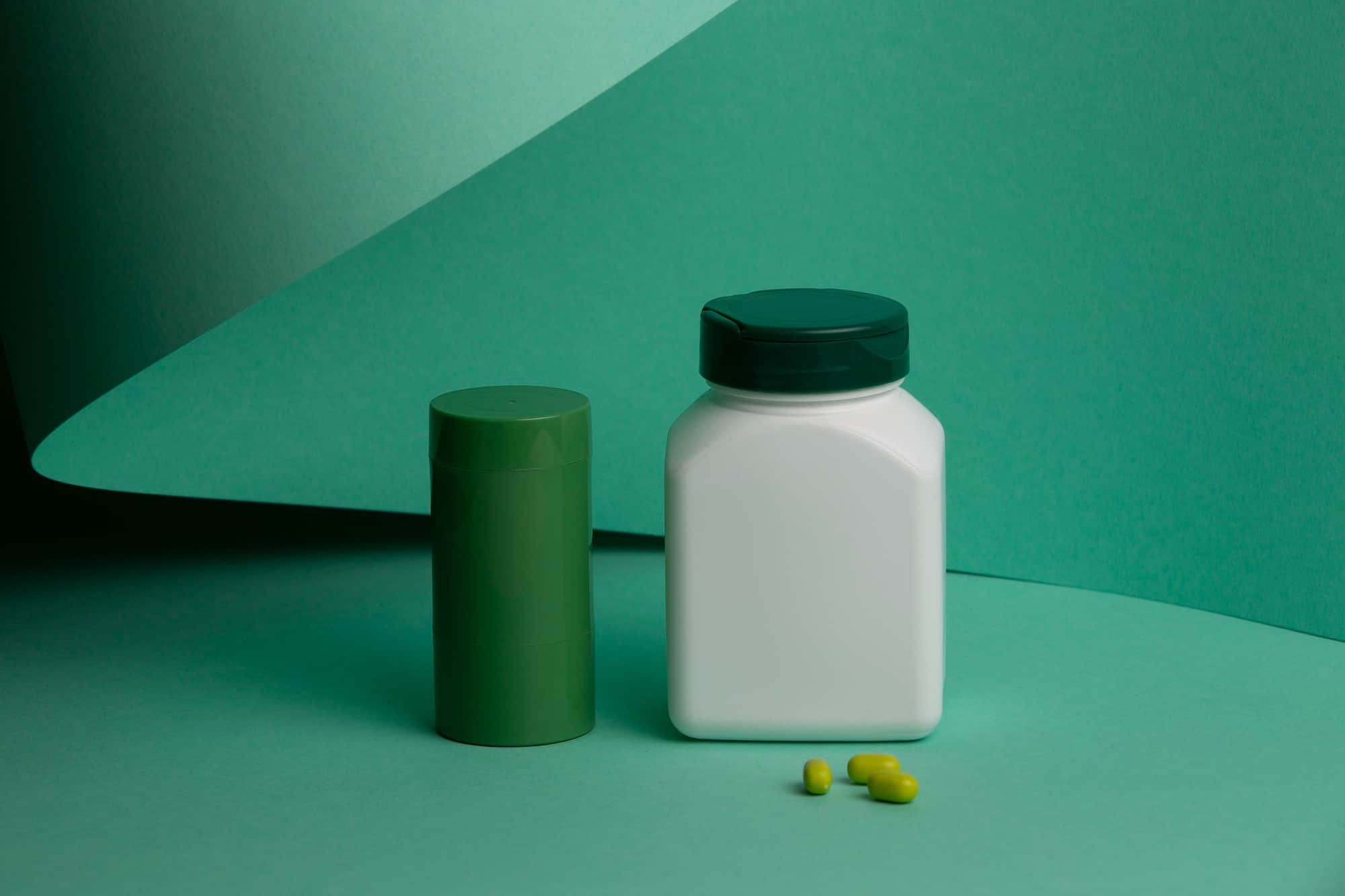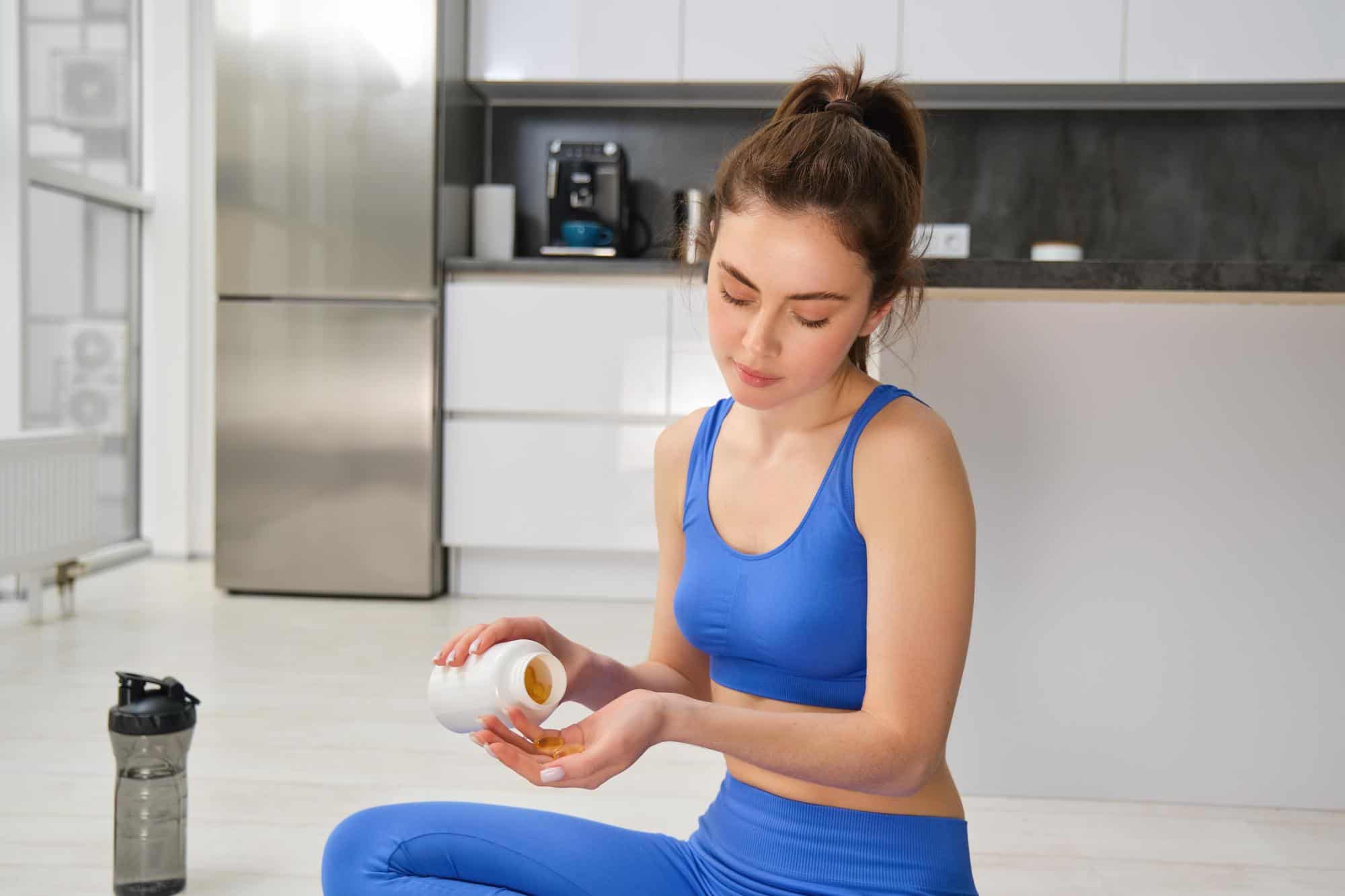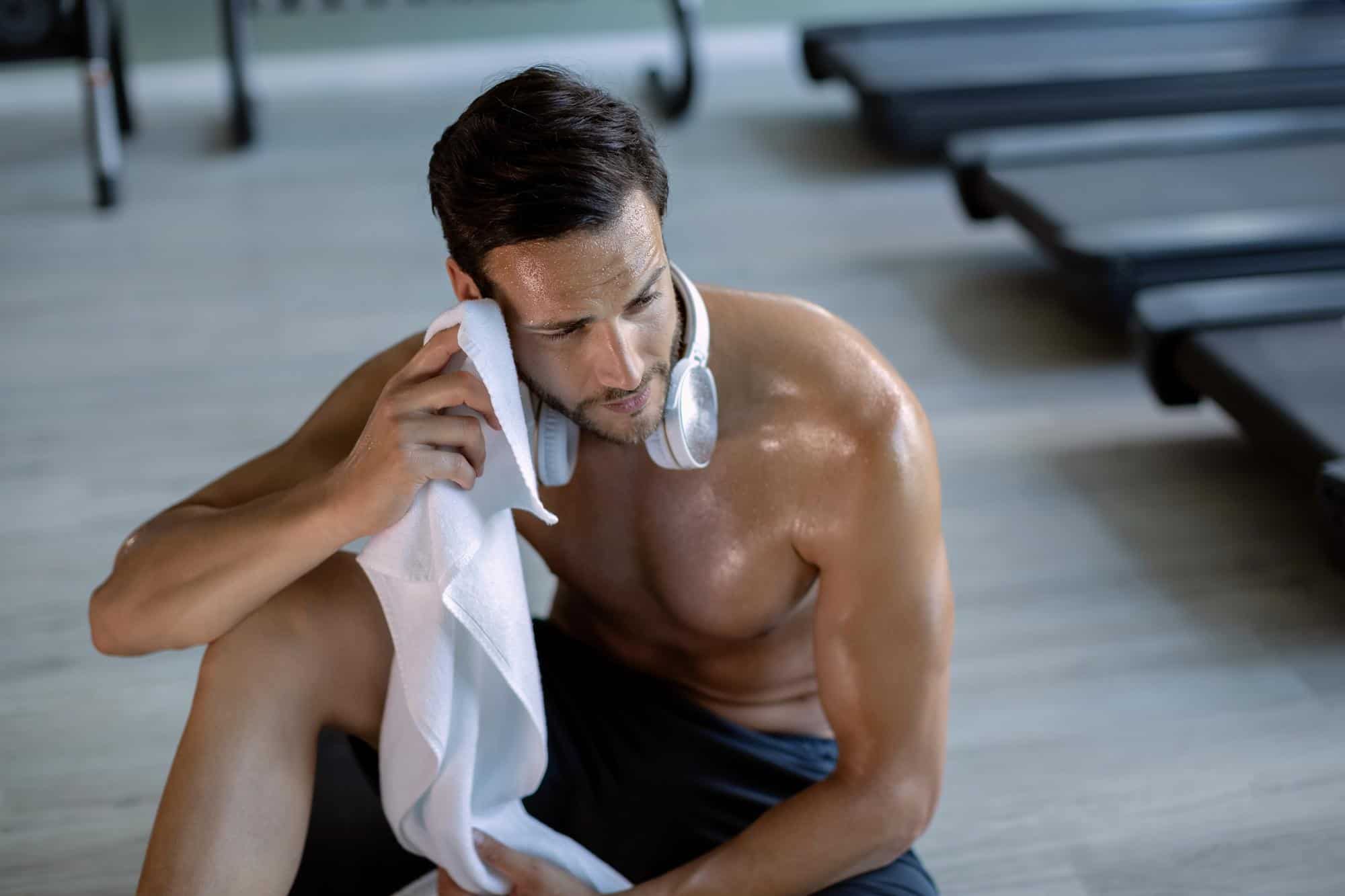An intense workout may put you through hours of hard work, making you drenched in sweat. It’s a sign that while working out, your system is at work to keep your body cool through sweats.
Adding to the loads of exercise, a pre-workout session may raise a question— does pre-workout make you sweat more? Does it help you control your body temperature? This is what we’re going to demystify in this article.
As you delve into this helpful guide, you’ll know how a pre-workout session impacts your overall workout, the ingredients of pre-workout supplements, and explore how they regulate your perspiration level.
So, keep reading.
Understanding the Ingredients

To know how pre-workout impacts your body, you must understand the ingredients in the pre-workout supplements. In this section, we’re going to cover this point.
Components of Pre-Workout Supplements
Pre-workout supplements generally comprise various ingredients. These ingredients are formulated to increase your energy level. Apart from this, you can enhance your focus and endurance by using these supplements while working out.
Some notable ingredients in the pre-workout supplements are vasodilators, stimulants, thermogenic agents, etc. Furthermore, some supplements may even contain caffeine.
Each ingredient comes into play in your system with its unique roles, impacting your body during exercise.
How These Ingredients May Contribute to Sweating
The ingredients in the pre-workout supplements can contribute to increased sweating. They do so by increasing the heart rate and body temperature.
When the heart rate increases, the sweat glands are stimulated, along with increased blood circulation.
Technically, the ingredients in pre-workout supplements work together in the body’s various systems. Enhanced metabolism is another state that you may achieve with pre-workout supplements that contributes to excess perspiration.
Another similar ingredient that increases your performance is beta-alanine. This amino acid increases performance and contributes to sweating while working out.
Stimulant Effects on Sweating
Let’s shed some light on the stimulant effects that may regulate your sweating level while working out.
Role of Caffeine in Pre-Workout Supplements

Caffeine is one of the most common stimulants found in pre-workout supplements. You may already realize that caffeine directly acts on the central nervous system (CNS).
Doing so enhances alertness while decreasing the perceived effort while working out. Hence, you may see increased sweating during your exercises.
On the brighter side, caffeine helps you with enhanced resistance to fatigue. It increases your endurance during intense workouts with minimum side effects in the system.
Stimulation of the Central Nervous System
While induced by stimulants like caffeine, creatine, beta-alanine, etc., in the pre-workout supplements, your central nervous system experiences a range of cascading events.
You’ll experience increased heart rate, speedy neural actions, quick blood flow, etc. All these activities in the system will make you go higher in temperature while excessively sweating during a workout.
However, the adversity or benefits of these stimulants depend on the dosage. If you intake these supplements in a moderate quantity, chances of anxiety, jitteriness, kidney stones, etc., are less likely.
Connection Between Increased Alertness and Sweating
It’s difficult to figure out the link between increased alertness and sweating clearly. While running on the treadmill, doing indoor cycling, walking on ellipticals, etc., your heart rate naturally increases.
As the heart rate increases, the alertness is heightened. Hence, the body may demand extended workouts to adjust the system while leading to excessive sweating to cool the system.
Note that some stimulants not only trigger the CNS but activate thermogenesis in the system, too, promoting excessive sweating.
Thermogenic Agents and Sweating
The thermogenic agents in the pre-workout supplements are other notable compounds that contribute to excessive sweating. Let’s learn about them below:
Overview of Thermogenesis
Thermogenic agents are the central elements in pre-workout supplements. These agents are responsible for thermogenesis, a process to generate heat in the body for temperature and metabolism control.
These functions, altogether, lead to sweating in the body while working out.
Thermogenesis consists of various functions, including BMR (Basal Metabolic Rate), diet-induced thermogenesis, exercise-induced thermogenesis, etc.
There are other thermogenesis like adaptive thermogenesis, shivering thermogenesis, and non-shivering thermogenesis.
Shivering thermogenesis allows muscle contractions to deal with cold, while non-shivering thermogenesis activates adipose tissue. However, adaptive thermogenesis handles the spending of energy in the modified environment.
Moreover, hormones like thyroid and catecholamines also actively contribute to thermogenesis function.
Activation of the Body’s heat-producing Mechanisms
While intensely working out after taking pre-workout supplements, your body produces heat to prepare and sustain against the changing temperature.
As the body starts to heat up, the internal cooling system starts to act, ultimately leading to excessive perspiration.
When exposed to cold, the non-shivering thermogenesis interacts with adipose tissue to produce heat through muscle contraction. Moreover, shivering thermogenesis supports this mechanism by its rapid muscle contraction process.
Thyroid and catecholamines also contribute to this mechanism by increasing metabolism and heat production. All these processes work together to maintain your health while exposed to varying temperatures during workouts.
Relationship Between Thermogenic Agents and Sweating
Thermogenic agents induced in the system through pre-workout supplements can cause perspiration as a part of its thermoregulatory process.
The metabolic rate increases due to the thermogenic agents, which also increase the body temperature. It also activates the sweat glands, which leads to sweating during workouts.
Sweating reciprocates to cool the body temperature that’s caused by heightened thermogenesis. True thermogenesis helps in fat metabolism and calorie burning, but it also causes excessive perspiration.
This is how thermogenesis and sweating work together to keep the body temperature balanced through intense exercise.
Vasodilators and Blood Flow
Vasodilators are a significant ingredient of pre-workout supplements, and they help smooth blood flow within the body during workouts. Let’s find out their function below:
How Vasodilators Impact Blood Flow
Vasodilators dilate blood vessels. They widen the blood vessels while reducing the resistance and making the blood flow smooth.
Thus the muscles receive more oxygen through the increased blood flow while showing enhanced performance during workout. This also promotes nutrients to the tissue, which enhances cardiovascular functions.
Increased Circulation and Potential Heat Dissipation
When the blood flow is amplified due to vasodilators, it also possibly dissipates the heat. Blood flowing closer to the skin’s surface helps dissipate the heat from the body toward the external environment.
Doing so intensifies the sweating function, which you see as excessive perspiration while exercising.
Perspiration as a Cooling Mechanism
While vasodilators in the pre-workout supplements and increased blood flow are in the act, it leads to the most common scenario— perspiration. As you perspire heavily during a workout, it evaporates the heat generated in your body.
Eventually, this works as a cooling system to maintain the thermal equilibrium in the body. Sweating also helps release stress and anxiety from the system, making you more active and spontaneous through exercising.
Individual Variability

Pre-workout-induced perspiration is completely an individual experience, meaning it varies from person to person.
Let’s get to know more elaborately on this aspect:
Acknowledging Differences in Response to Pre-Workout
Not everyone will experience sweating on the same level during a workout with pre-workout in the system. It simply varies depending on the individual metabolism, stimulant sensitivity, fitness, etc.
Furthermore, one type of pre-workout supplement may work well for a fitness lover but may work differently for another. One may experience increased thermogenesis and energy, while the other may find it agitating.
Factors Influencing the Degree of Sweating
How much one will perspire depends on several factors, such as:
- Ingredients in the pre-workout supplements
- Dosage
- Age
- Environmental condition
- Hydration status
- Stimulant sensitivity
Moreover, individual perspiration management also matters regarding sweating experience due to pre-workout. Thermogenic agents, caffeine, and increased metabolism always affect each individual differently.
Hydration Considerations

Keeping hydration status in mind is another factor that may affect your sweating level in you. Let’s break it down below:
Importance of Staying Hydrated During Workout
Your sweating level is related to your body’s hydration status. Both are interconnected. Excessive sweating reduces the hydration level in your system.
Thus, you must stay hydrated during workouts to keep your body temperature under control and fill up for the lost moisture in your body. A sweating disorder, hyperhidrosis, may also cause you to lose water from your body during a workout.
So, apart from drinking water before a workout, you must follow the things below to replenish the lost fluids:
- Taking small sips of water in between workout sessions
- Drinking beverages with electrolytes
- Drinking coconut water
- Taking drink breaks
- Drinking water after a workout
Balancing Increased Sweat Production with Fluid Intake
You must keep an eye on the excessive sweating and fluid intake. Simply put, you should strike a balance between increased perspiration and the level of fluid intake so your body doesn’t run short of electrolytes.
Maintaining this balance is a must-do act in your workout regimen. Doing otherwise may compromise your system through dehydration, other health complications, and reduced performance.
Electrolyte Balance and Its Role in Sweating
Having enough electrolyte supply may support your body’s temperature and overall well-being while heavily sweating during a workout. That’s why a pre-workout full of electrolytes is a smart move to go into an intense workout regimen.
Opt for pre-workout supplements that contain potassium and sodium, two compounds that contribute to electrolyte balance in the body during increased perspiration.
Balanced electrolyte supply in the body reduces muscle cramps, fatigue, etc.
Potential Side Effects

Excessive sweating during a workout may have negative consequences. That’s what we’re going to discuss in the following:
Excessive Sweating and Its Impact on Comfort
Sweating may be a cooling system of the body, but it may also lead to potential skin irritations, discomfort, etc. If you can’t balance your fitness and comfort within the workout regimen, your fitness goal may be compromised to an extent.
Monitoring for Signs of Dehydration
You must keep watching on your hydration level. Monitor signs of dehydration in your body during workouts.
If you notice symptoms like dizziness, darkened urine, increased heartbeat, and the like, prepare to intake enough fluid into your system. You should also consider adjusting your pre-workout types and dosages.
Adjusting Pre-Workout Dosage Based on Individual Response
You must adjust your pre-workout supplements depending on your personal fitness goal, response to certain ingredients, side effects, body weight, etc. You may consult a certified physician to change or adjust these supplements to ensure a safe and healthy approach to your fitness goal.
Conclusion
You can note that an individual approach, response, and reaction to pre-workout supplements greatly affect the perspiration level.
Thermogenic agents, stimulants, vasodilators, etc., may obviously work together to cause excessive sweating. However, factors like genetics, hydration status, personal preference, etc., contribute to this phenomenon.
Hence, a prudent approach is optimum in taking pre-workout supplements to achieve your personal fitness goals without reducing performance or compromising health.